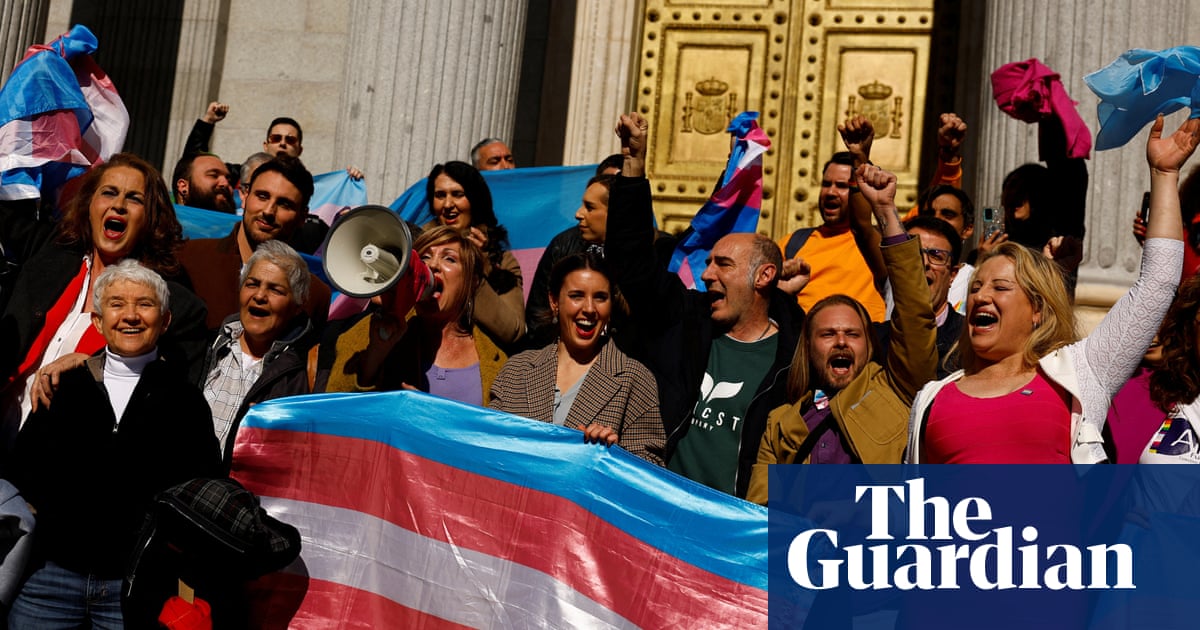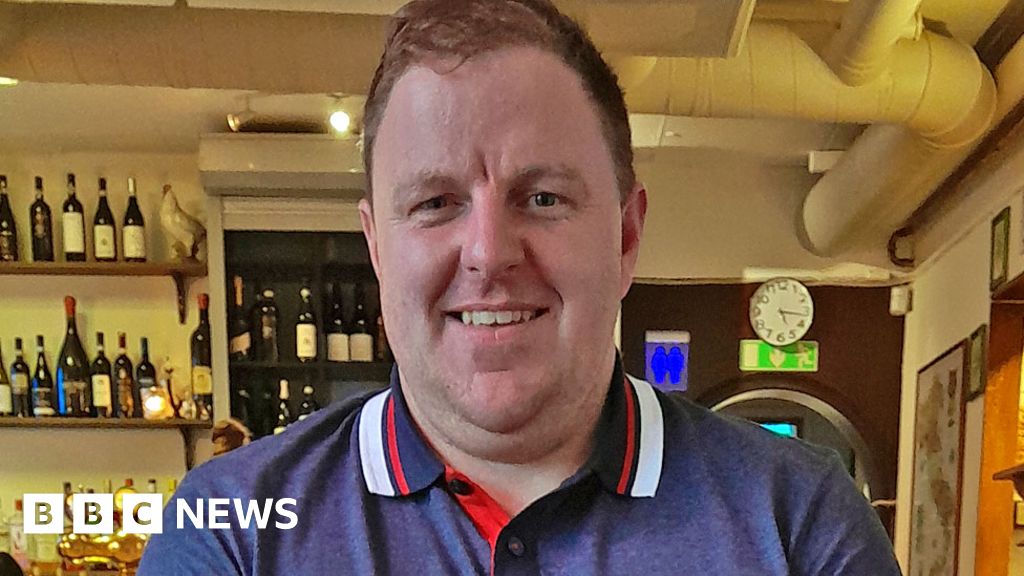- Wheelie's Newsletter
- Posts
- WheelieQueer
WheelieQueer
Breaking down barriers for Deaf and Disabled People
Hello. In this month’s edition of the WheelieQueer Newsletter, we give a short summary of the ongoing Sudan crisis, speak about Spain’s new transgender legislation, and highlight the need for emergency service personnel to have basic sign language training.

Source: Pexels
THIS MONTH'S NEWS
On Human Rights Issues
Sudan Crisis
In recent weeks, Sudan, one of the poorest countries in the world, has seen fighting erupt between the army and the paramilitary force (Rapid Support Forces RSF) in a power struggle for the country’s leadership.
After a series of coups, the 2021 coup saw the prime minister and his cabinet arrested, and the government dissolved, with Sudan being led by a council of generals who are now at the centre of the dispute.
The two leaders, Gen Abdel Fattah al-Burhan (the president) and Gen Mohamed Hamdan Dagalo (RSF), disagree on the direction of the country, and its proposed move towards civilian rule.
In mid-April, the fight between the two parties escalated after a series of shootings in the capital city Khartoum, which saw more than 400 civilians dead according to the WHO, the BBC reports. With much of the fighting happening in urban areas, civilians are increasingly becoming the unwitting victims of the power struggle.
International parties have been calling for humanitarian ceasefires and dialogue amidst the growing humanitarian crisis and mass displacement, with thousands fleeing the war-torn country for Egypt, Chad and South Sudan.
Important Read:
Rediscovering Conviviality: France
The so-called Republic of Super Neighbours (République des Hyper Voisins) is an experiment on the Left Bank of Paris, covering roughly 50 streets and 15,000 residents, where for the last five years citizens have tried to address the shortcomings of modern city living.
The experiments started with the simple idea of saying Bonjour:
“The stereotype of a Parisian is brusque and unfriendly,” says Patrick Bernard, the former journalist and local resident who launched the project. “But city living doesn’t have to be unpleasant and anonymous. We want to create the atmosphere of a village in an urban space. Conviviality is not just a good feeling,” […]“It can become a powerful asset, an essential economic and social agent in the construction of tomorrow’s cities.” - The Guardian
Now, five years later, almost 2,000 people attend the weekly brunches and meetings in local restaurants and venues, starting groups to support the vulnerable and elderly in the community, or simply reaching out for a neighbourly chat.
Hyper Voisins has since inspired other districts to start similar projects. Changing unused public spaces and roads into places for “life interaction and meetings”, as seen at the Place des Droit de l’Enfant, creating spaces for meaningful exchange and neighbourly support.
Important Read:
Remembering Traute Lafrenz
In early March Traute Lafrenz, the last surviving member of the anti-Nazi resistant movement Weiße Rose (White Rose) died aged 103 in South Carolina, where she had moved after the end of World War II.
Lafrenz was a member of the White Rose group, who actively protested against the rising Nazi regime alongside Hans and Sophie Scholl, the group's leaders. In 1943 the group spread anti-war leaflets, which would later lead to the arrest of most of the group’s members and the execution of the siblings.
Lafrenz herself was arrested twice and interviewed by the Gestapo. Her upcoming trial and potential death sentencing were only stopped by the Allies’ liberation of the prison, actively saving her life.
After the war, Lafrenz immigrated to the US, where she would meet her future husband and worked as a doctor for many years. Including as the head of the Esperanza School, which helped students with developmental disabilities.
On her 100th birthday, Lafrenz was awarded the Bundesverdienstkreuz (The Order of Merit of the Federal Republic of Germany) for her fight against the Nazi regime as a hero for freedom.
On LGBTQ+ Rights Issues
Supreme Court rules in favour of LGBTQ+ community
In a long-fought win for the LGBTQ+ community in Kenya, the Kenyan Supreme Court ruled that the government’s failure to register an association for LGBTQ+ people was in fact discriminating the rights of the community.
The Guardian reports: “In a majority decision, the court ruled that the non-governmental coordination board was discriminatory and infringed on the community’s constitutional right to association by refusing to register any of six names proposed by the community’s representatives, among them the National Gay and Lesbian Human Rights Commission and the Gay and Lesbian Human Rights Council.”
Same-sex unions remain illegal in Kenya, but the ruling is a beacon of hope for the local communities in their fight for equality.
The ruling states that “Human rights are inherent and held simply because of being a human. All human beings, including LGBTIQ persons, are entitled to the full enjoyment of all the rights under chapter four of the constitution, not by reason of their sexual preferences as LGBTIQ but as human beings. Just as the rights enjoyed by heterosexuals are not based on their sexual orientation but by virtue of common humanity.”
However, the ruling has been met by strong opposition from both churches and political leaders, as one MP vowed to put forward a bill that would entirely prohibit homosexuality, with even stricter penalties and prison sentences for those breaking the new law.
Spain: Parliament approves new transgender law
New legislation has been approved by the Spanish parliament that will allow anyone over 16 to change their registered gender, as well as an easing of abortion limits, ban conversion therapy and introduce paid menstrual leave, a first in Europe.
Though met by protests from both feminist groups and opposition parties, the law passed by 191 votes in favour.
“This is a law that recognises trans people’s right to freely decide their gender identity, she said. “It stops trans realities being treated as abnormalities. Trans people aren’t sick people; they’re people – full stop. They are who they are – full stop. Trans women are women – full stop. From today, the state recognises that,” Irene Montero, the Spanish equality minister, said after the vote.
In recent years, several European nations have reimposed restrictions on previously passed transgender legislation, with Westminster blocking a proposed Scottish trans rights law, quite similar to the Spanish, only a few weeks ago.
“We all know of other countries that have backtracked on their ‘trans laws’ because they now know that they got ahead of themselves and that that caused a lot of suffering,” said a party spokesperson, María Jesús Moro. “Let’s not have the same thing here.” - The Guardian
Important read:
Gina Méndez-Miró approved by U.S. Senate
Earlier this year, the U.S. Senate in a 54 to 45 vote, approved Biden’s nomination of Gina Méndez-Miró, the first openly LGBTQ+ American judge to serve on a federal district court, making her the 100th federal court appointment of the Biden administration.
NBC News: “Senate Democrats and the Biden administration have vowed to continue to fast-track efforts in the new year to reshape the federal judiciary, choosing demographically diverse candidates and nominees with varied legal experiences. Of Biden’s 100 judges, 76 thus far have been women and 68 have been people of color, according to Senate Democrats”.
Senate Majority Leader Chuck Schumer remarked on the ruling that “the more our judges reflect our nation’s vibrancy and diversity, the more effective they will be in administering equal justice, […]”.
Méndez-Miró has served on the Puerto Rico Court of Appeals since 2016.
On Disability Rights Issues
Ryanair has wheelchair user crawl off plane
Adrian Keogh, was made to crawl down the metal steps from a plane upon landing at Landvetter Airport in Sweden, as no one was there to help him disembark.
The BBC reports that Keogh was told by the Ryanair crew to crawl from the aircraft instead of waiting for help. A statement that has been denied by Ryanair. Landvetter Airport has since apologised for the incident.
Having spoken to the BBC “Mr Keogh, who has a spinal injury following a construction accident, told BBC News NI he was not able to wait for an hour for assistance disembarking the plane as he was in pain after the flight and needed to use the bathroom”.
He further commented that this hasn’t been the first incident and that air travel can be frustrating: “It’s unacceptable - all I ask for is to be able to travel with dignity”.
Important Read:
Ambulance crews should learn basic sign language
In early April the BBC told the story of Elizabeth Corbett, who had to learn of her husband’s death via a video call from an employer after paramedics failed to explain to her that her husband, David Corbett, had passed away.
Mrs Corbett, who was born without hearing, was at work when she received a video call from her children about her husband’s sudden illness. When she rushed home, emergency services, would not let her into the house. It was only when she contacted her workplace to speak to the paramedics that she was told that her husband had died.
“I wanted to know what was happening and the police were asking me questions, but they were all wearing facemasks so I couldn't tell what they were saying,” Elizabeth Corbett told the BBC.
She is now calling for emergency workers to have sign language training or mobile devices that will enable clear communication should a qualified interpreter not be available.
“[…] once the paramedics had realised she was deaf, they had removed their facemasks. But for a deaf person in such a stressful situation it was very difficult to lipread, despite their efforts," the BBC quotes.
The divisional director for Derbyshire at EMAS has since reached out to the family, telling the BBC that “as an organisation we are currently working with the Nottinghamshire Deaf Society to discuss how we can improve our education to staff around deaf awareness and common emergency communication problems”.
In 2023 venues still don’t understand accessibility
The disabled access charity Euan’s Guide released its annual Access Survey earlier last month, with the Huffington Post reporting, that the report made for “seriously grim reading”.
The survey, which had been taken by 7,500 disabled people, was especially damning in its report on the lack of understanding of venues on accessibility.
Euan’s Guide Managing Director Antonia Lee-Bapty tells the Huffington Post that their advice to venues would be, to simply be straightforward about the disabled access information provided, “make sure you say what you do have in terms of accessible facilities, and include photos where you can as these often do all the talking”.
“22% of the UK population is disabled and prioritising accessibility and what that actually entails is vital for any venue looking to be entirely inclusive". - Sarah-Louise Kelly (Huffington Post)
What’s Next
We hope you enjoyed this month’s newsletter!
If you have missed our special edition PIP/Disability News newsletter on the governments Spring Budget 2023. You can find our summary and accessible formats HERE
Best,
The WheelieQueer Team

WHEELIEQUEER
Breaking down barriers for Deaf and Disabled People
Want to get in contact with us? Message us here
Want more information on what we do? Find us here
Have a question for Jasper? Send it in here



